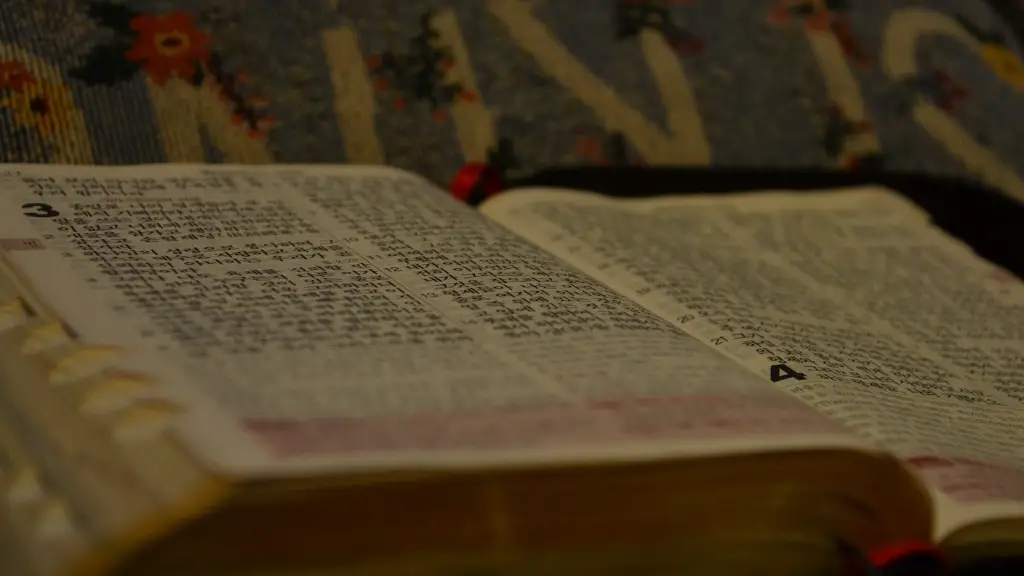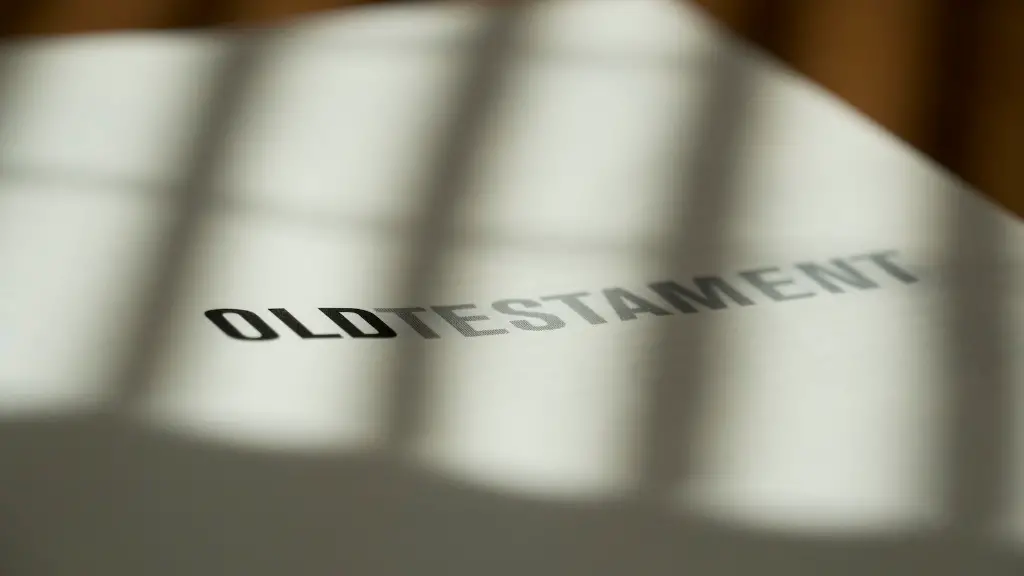Reconciliation is the act of restoring peace between two people or groups who have been in conflict. In the Bible, reconciliation is often used to describe the process of returning to a right relationship with God. This can be accomplished through repentance, which is turning away from sin and back to God. When we are reconciled to God, we are forgiven and given new life in Christ.
There is no one answer to this question as the Bible contains many different passages on reconciliation. However, in general, reconciliation is the act of returning to a former state of harmony or friendship. This can be done through repentance, forgiveness, and restitution.
What does reconciliation mean in Christianity?
We must all make an effort to reconcile with one another. It is only through forgiveness that we can hope to achieve peace.
The reconciliation that Jesus brings is not just a restoration of our relationship to God, but also a restoration of our relationships with each other, with Creation, and with ourselves. In Christ, we are made new creatures, and all things are made new. This reconciliation is a work of redemption that brings wholeness and healing to all aspects of our lives.
What is an example of reconciliation in the Bible
The Bible is full of examples of people who have reconciled with one another after experiencing deep hurt or division. Joseph forgave his brothers for selling him into slavery (Genesis 45:15). Jesus reconciled with Peter after Peter denied knowing Him three times (John 21:15-17). These examples show us that it is possible to overcome hurt and division, and that reconciliation is possible.
Reconciliation is the act of making amends for something. In a personal context, this could involve apologizing to someone you have wronged. In a broader sense, reconciliation can also refer to the process of two groups in a conflict coming to an agreement or truce. The term is also used in the Catholic faith in reference to the sacrament of confession.
What is the difference between forgiveness and reconciliation?
Reconciliation is a two-way street. It requires both parties to be willing to work together to rebuild the relationship. Forgiveness, on the other hand, only requires one person to be willing to let go of the hurt and anger. The offender does not need to take any action for the person to forgive them.
The sacrament of reconciliation is an important part of the Christian life. It allows us to repent of our sins and be forgiven by God. This forgiveness brings about a change of heart through God’s mercy and forgiveness.
Why is reconciliation so important?
Reconciliation is about creating equity and equality, and closing the gap between Aboriginal and Torres Strait Islander Australians and non-Indigenous Australians. It is also about building relationships between all Australians.
Reconciliation is a beautiful sacrament that brings us back into union with God. Our sins can damage our relationship with our Lord, but through this sacrament we can have that relationship repaired and strengthened. This is a most powerful sacrament and one that we should all take advantage of.
What is the spiritual gift of reconciliation
The Sacrament of Reconciliation is a sacrament in which we confess our sins to a priest and receive forgiveness. This sacrament is also known as confession or penance. The priest is acting in the name of Jesus Christ when he forgives our sins.
This sacrament is very important because it allows us to be reconciled with God. When we confess our sins, we are acknowledging that we have done something wrong and that we are sorry for it. We are also asking for God’s forgiveness.
Forgiveness is a central theme in Christianity, and the Sacrament of Reconciliation is one of the ways in which we experience that forgiveness. This sacrament is a reminder that we are all sinners and that we all need God’s forgiveness. It is also a reminder of God’s great love for us, that He is always willing to forgive us no matter what we have done.
In confession, we confront our sins in a profound way to God by speaking them aloud to the priest. Penance is an important part of our healing, and the priest gives us penance in reparation for our sins. Absolution is the act by which the priest reconciles us to God and absolves us from our sins.
What are the 3 names of reconciliation?
The Catholic Sacrament of Reconciliation is a beautiful way to find God’s forgiveness and to learn to forgive others. In this sacrament, we confess our sins to a priest, and he then absolves us of our sins. This is a powerful way to experience God’s love and mercy.
If you’re looking to be an ally in the reconciliation process, there are a few things you can do. First, listen. Ask questions and really try to understand the experience of Indigenous peoples in Canada. Write to the prime minister and your government representatives and urge them to implement the TRC’s 94 Calls to Action. Talk to an Elder in the community and learn as much as you can. Join a local reconciliation committee in your community and get involved. Hold a reconciliation workshop in your community to help educate others. There’s a lot we can all do to support reconciliation in Canada.
What does it mean to reconcile with God
Elder Bruce R McConkie taught that reconciliation is the process of ransoming man from his state of sin and spiritual darkness and of restoring him to a state of harmony and unity with Deity. In other words, to be reconciled to God means to be restored to His grace and favor. This can only be accomplished through the Atonement of Jesus Christ.
Forgiveness and reconciliation are not the same thing. It is possible to forgive someone, without reconciling with them, however, it is not possible to truly reconcile with someone without truly forgiving them. Sometimes, the confusion over reconciliation and forgiveness can actually hinder us from forgiving someone.
Does reconciliation mean getting back together?
If you are both willing to work on things and give it another try, then there is no harm in giving reconciliation a chance. Just be sure that you are both committed to making things work this time around.
Reconciliation can only take place if genuine apology that bares emotion and remorse for an offender’s action is offered freely to the victim of the offense. This is the first and most important step in the reconciliation process. Without a sincere apology, there can be no reconciliation.
Final Words
Reconciliation in the Bible refers to the process of bringing people back into a right relationship with God. This can happen through repentance and forgiveness, and it results in peace and harmony.
Reconciliation in the Bible refers to the restoration of a relationship between God and humanity. This can be accomplished through forgiveness and repentance.





